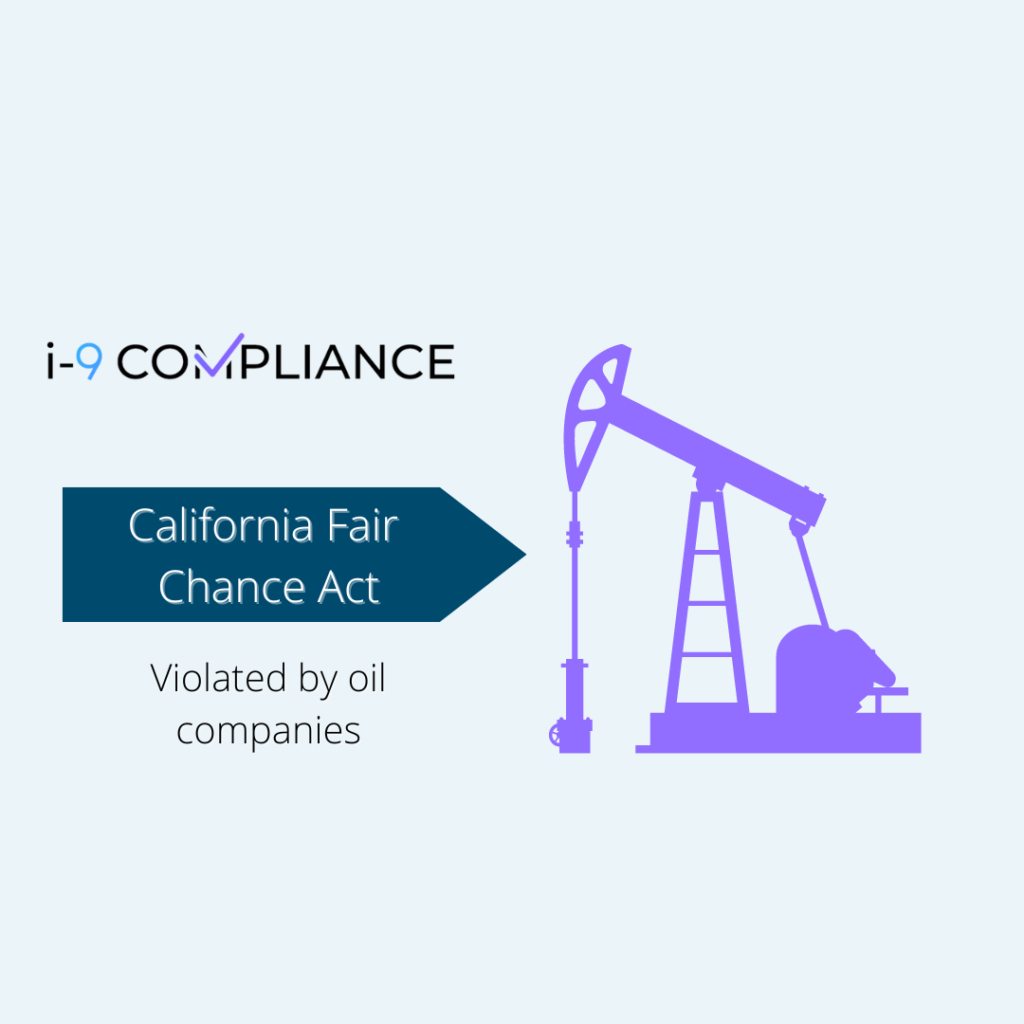A Fair Chance Act lawsuit has reached the Los Angeles, California courts. In this case, several oil companies and their employment contractors face accusations concerning the dismissal of applicants with criminal records. According to the plaintiff, impacted applicants received rejections only because of specific convictions.
According to California’s Fair Chance Act, employers with at least five employees must conduct an individual assessment of any applicant’s criminal history. The act also bans employers from disqualifying applicants due to their criminal record unless there is a direct and adverse relationship to the job duties. Employers who disqualify applicants due to criminal records must provide an opportunity to present evidence of rehabilitation and employment history. Applicants may also appeal the rejection to the state’s Civil Rights Department.
This Fair Chance Act lawsuit did not reveal the plaintiff’s name; instead, it referred to her as Jane Roe. The plaintiff explained her background, showing a 1993 conviction of conspiracy to commit armed robbery and other charges as a 21-year-old. Though she received a 26.5-year sentence, a judge overturned most of the convictions 24 years later. This judge reduced her sentence to five years, had her released, and labeled her constitutional rights as previously violated.
Once released from prison, the plaintiff worked for approximately four years at oil companies. One example included a position as a pipeline attendant at an oil refinery where the issue began. It started in 2019 when she obtained a safety credential that involved passing a thorough background check. That same year, several companies, including the one she worked for, hired a new background screening company to review future employment applications. This policy disqualified applicants with specific felony convictions without considering their entire record.
The plaintiff explained how she received a job offer for a refinery safety position through a safety services company in December 2019. However, the company withdrew this offer the following month due to the policy above. According to the plaintiff, she worked with the oil company previously without issues, so the ineligibility now came as a surprise and led to her unemployment.
This sudden change led to the plaintiff filing a lawsuit against the companies and their employment contractors for violating the California Fair Chance Act. Furthermore, the suit alleged that the companies use a rigid system designed by themselves to deny otherwise qualified applicants due to their conviction history only. The lawsuit sought unspecified damages and a court order stopping automatic disqualification screening policies.
